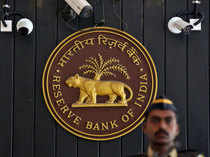 Reuters
ReutersReleasing the long-pending guidelines on such trades late Tuesday, the RBI said that banks based in India could sell all types of derivative and forward products to help companies based here hedge their foreign exchange risks.
Many of these products were banned in the aftermath of the 2008 crisis. RBI has now allowed these products from June 1. But banks will have to seek the approval of their boards to sell these derivative products to companies with a net worth of Rs 500 crore or more. Plain forward forex products with call and put options are also open to retail investors, RBI said.
"This has been in the works for a long time now and it is good the RBI has chosen to open up despite the ongoing crisis. Both banks and companies have to take the approval of their boards to deal in these products. I think we will see a slow introduction to these instruments, starting with basic products and gradually moving to more exotic stuff but only when the market is stable, steady and more liquid," said Ashish Vaidya, head of treasury at DBS Bank India.
The norms allow companies to hedge their foreign currency risk even on anticipated exposures, which means companies can enter into derivative contracts before a deal to ensure that their investment is not hurt by a volatile rupee.
Meanwhile, the rupee hit a new record low, mirroring the weakness in other emerging market currencies. The local unit lost 0.90 percent to close at 76.34 Wednesday, ending the day as the worst performing Asian currency.
Foreign institutional investors also face no restrictions on cancelling or rebooking their forward contracts, which marks a change from the earlier policy in which they faced a 10% limit on cancelling and rebooking contracts.
"Earlier, FIIs used to go to overseas markets to hedge their exposure. These markets were not regulated by RBI and were out of control of the regulator. With no restrictions now, there is a possibility that all these trades will move to India, which is good for the regulator as well as market participants," said UR Bhat, director Dalton Capital Advisors.
The only restriction the new norms have is that companies and investors cannot leverage their transactions. However, the accountability on products is on the banks.
“Determining anticipated or underlying exposures is now the onus of the authorised dealer (i.e. a bank),” said Abhishek Goenka, founder & CEO at IFA Global. “Everyone will be more focussed on protecting their business margins and cash flows. Companies will have to show their underlying exposures; otherwise profits may not be passed on at maturity.”
During 2008, many small and medium enterprises, such as export units based out Tamil Nadu, had been hit due to the derivative products they had bought. By restricting trades to companies only above 500 crore net-worth, RBI has tried to protect them. Retail clients can enter into spreads structures while bigger clients can enter into exotic derivatives, bankers said.
Download The Economic Times News App to get Daily Market Updates & Live Business News.
Subscribe to The Economic Times Prime and read the Economic Times ePaper Online.and Sensex Today.
Top Trending Stocks: SBI Share Price, Axis Bank Share Price, HDFC Bank Share Price, Infosys Share Price, Wipro Share Price, NTPC Share Price
Read More News on
Download The Economic Times News App to get Daily Market Updates & Live Business News.
Subscribe to The Economic Times Prime and read the Economic Times ePaper Online.and Sensex Today.
Top Trending Stocks: SBI Share Price, Axis Bank Share Price, HDFC Bank Share Price, Infosys Share Price, Wipro Share Price, NTPC Share Price
















 Get Unlimited Access to The Economic Times
Get Unlimited Access to The Economic Times
